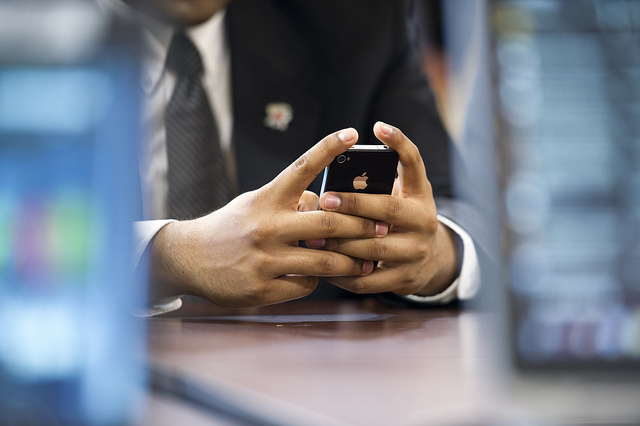A recent study showed that men get retweeted more than women. The question is, why? We’ll examine the science behind why tweets published by men are, on average, more popular than those by women and how professionals can apply this knowledge to their enhance their career potential, regardless of gender.

(Photo Credit: Maryland GovPics/Flickr)
If you haven’t noticed by now, maintaining a professional online persona is absolutely crucial to a promising career trajectory. Too often, individuals forget that what happens online, especially on social media, stays online indefinitely, and they naively publish incriminating or offensive posts on their social networks that jeopardize or terminate their employment. When this happens, not only are these individuals publicly humiliated, but their reputations are forever tarnished as well.
A recent study conducted by New York University linguistics doctoral student, Allison Sharp, found that tweets made by men get retweeted more than those made by women. The reason for this, Sharp discovered, was due to the nature of the posts, particularly the types of hashtags commonly utilized by the different genders. In her study, Sharp defines two categories of Twitter hashtags, which are defined as follows:
Tag Hashtag: These are commonly used to “connect with a larger discussion and/or community” and can be thought of as keywords that you’d use to conduct a search on a particular topic (e.g. #GenderEquality or #CareerNews). Tag hashtags are considered to be “informational.”
Commentary Hashtags: Typically, these types of tags are “are not intended to affiliate widely, and are meant to be interpreted within the local context of the tweet,” often expressing emotions (e.g. #bored or #TGIF). Commentary hashtags are more “involved” in nature, much like a blog or diary.
The study discovered that men are more prone to use “tag hashtags” (informative) more often and women prefer “commentary hashtags” (involved). Additionally, tweets with “tags” contained far more URLs than “commentary” tweets. Links to external content is presumably informative to readers than standalone, diary-like tweets.
How does this relate to career and professionals maintaining a stellar online identity? The content of the tweets you publish and retweet show who you are as a professional and an individual, and they are also representative of your beliefs, character, and preferences. On that same note, other recent studies indicate that new technology makes it possible to use a person’s social media usage (frequency, content, etc.) to gauge his/her psychological state and various aspects of his/her personality.
I’m not saying that this is a valid means of determining whether or not you’re a stable human being, or even drawing an honest conclusion of what type of person you are. However, the point is, employers and recruiters are definitely looking online to scope out candidates and employees, so it’s better to be in the know than be blindsided by this scary fact.
Is it better to keep your emotions and strong opinions at bay when taking to social media? Yes, probably, if you don’t want to give others in the professional world (who don’t know you well) the wrong impression. Just keep in mind that things posted online can be misinterpreted and blown out of proportion, so it’s best to err on the side of caution when sending tweets out for all to see.
Tell Us What You Think
Do you ever come across some dicey posts on social media and think, “What were they thinking?” If so, share your personal thoughts on how much professionals should and shouldn’t share online and how you keep your online image pristine. Leave your response in the comments section below or join the conversation on Twitter.
Leave a Reply